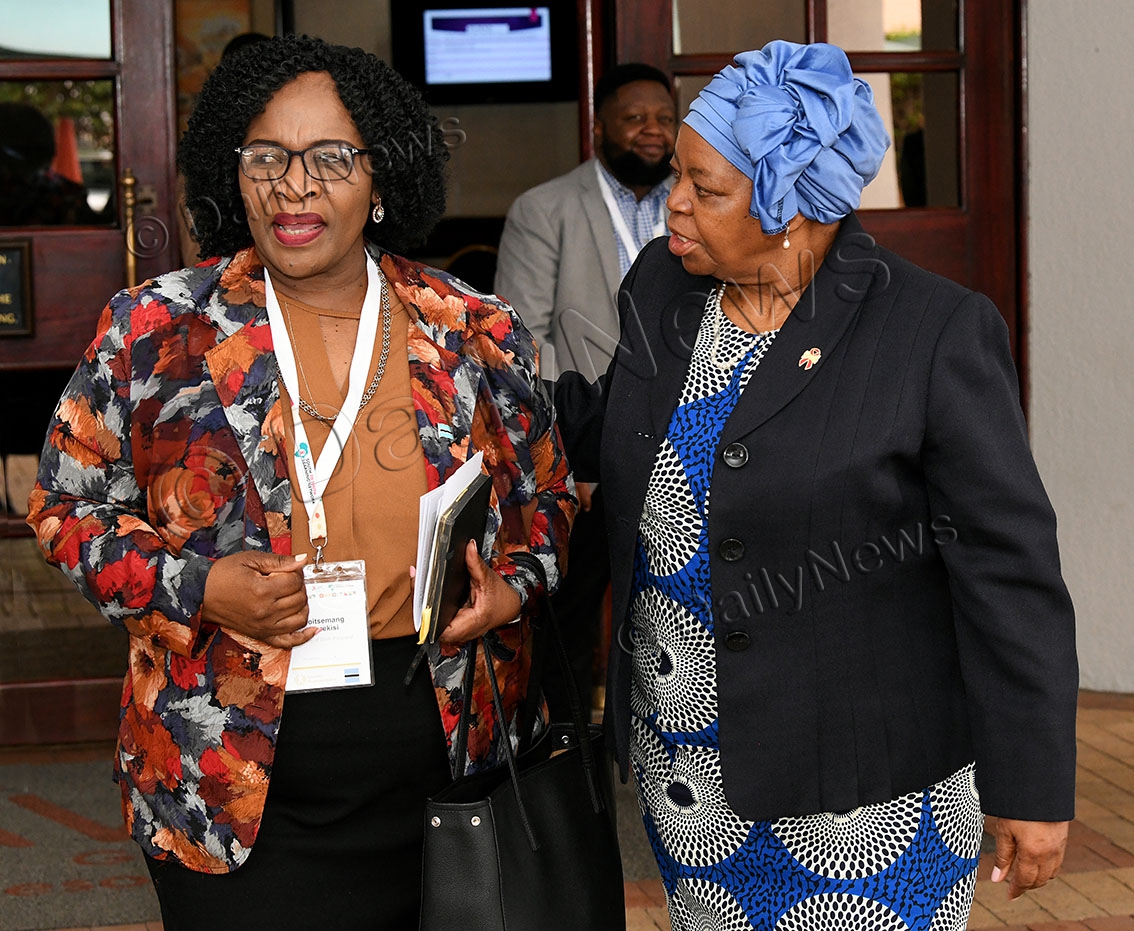Permanent Secretary in the Ministry for State President, Ms Goitsemang Morekisi says the monitoring and prevention of HIV requires collaborative solutions as resources for addressing the epidemic are becoming scarce, and competing with other priorities.
Speaking during the Global HIV Prevention Coalition (GPC) and South to South Learning Network (SSLN) HIV prevention outcomes workshop in Gaborone yesterday, Ms Morekisi urged countries to work smarter by putting minds together, learning from each other to be able to make savings on the meagre of resources at disposal.
“It is through collaboration that we can harness our shared experiences, leverage diverse strengths and build a future that is resilient, inclusive and prosperous for all humanity,” she said.
Permanent Secretary, therefore, noted that the South-to-South Learning Network has become a necessity in the HIV agenda, especially in connecting the global community.
She said the coalition sought to strengthen and sustain political commitment for primary HIV prevention by setting a common agenda among key policy makers, the donor community and programme implementers.
Ms Morekisi said the overall aim of the conference was to capacitate the technical experts in monitoring and evaluation of new tools, approaches and guidance to improve national systems and ability to conduct sustainability prevention monitoring.
The meeting’s primary focus is on the five HIV prevention pillars of programmes of Adolescent Girls and Young women, Comprehensive Condom Programming, Voluntary Medical Male Circumcision, Key Populations and ARV Based Prevention.
The workshop also provided attendants a platform to share, learn and inspire each other toward achieving collective goals of prevention, innovation and overall progress within various regions and the global community in the space of HIV response.
Furthermore, Ms Morekisi said the 2025 Global HIV Prevention Roadmap provided guidance to all countries on how to achieve reductions of HIV incidence in line with the targets set out in the 2021 United Nations Political Declaration on HIV and AIDS and the 2021-2026 Global AIDS strategy.
She said if the actions in the roadmap were successfully implemented and proposed investments for the HIV response were fulfilled, it was estimated that new infections could be reduced by more than 80 per cent from 1.5 million in 2021 to fewer than 3 700 00 per year in 2025.
For her part, the Global HIV Prevention Coalition Co-chairperson, Prof. Shiela Tlou pointed out that prevention was critical for the success of the HIV response.
She highlighted that eight countries including Botswana have reduced their numbers of annual new infections by more than 66 per cent adding that they were on track to achieve global target of 90 per cent reduction by 2030.
Prof. Tlou also called for strengthening political commitment and increased investments alongside an enabling legal and policy environment to implement programmes in an effort to accelerate HIV prevention.
“We need to put people at the centre and ensure that HIV prevention options are available and accessible to users by choice to secure and sustain gains,” she said. ends
